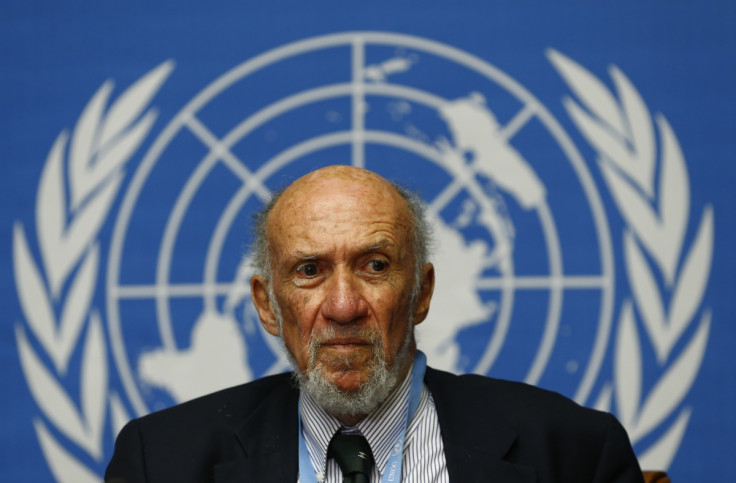Israel Guilty of Ethnic Cleansing and Apartheid, Says UN Rapporteur

A UN human rights investigator has accused Israel of ethnic cleansing and apartheid policies against Palestinians.
Richard Falk, the UN special rapporteur on human rights in the Palestinian territories, said Israel carried out a "systematic and continued effort to change the ethnic composition of East Jerusalem".
Falk, an 82-year-old American, said that in recent years Israel had made it more difficult for Palestinians to reside there while encouraging the building of new Jewish settlements, which are illegal under international law.
Falk, an emeritus law professor at Princeton University, said that more than 11,000 Palestinians had lost their right to live in Jerusalem since 1996.
"The 11,000 is just the tip of the iceberg because many more are faced with possible challenges to their residency rights," he said.
Falk, who is Jewish, described Israeli policies as bearing "unacceptable characteristics of colonialism, apartheid and ethnic cleansing".
"What is called occupation is now more widely understood to be a form of annexation, the embodiment of apartheid in the sense that there's a discriminatory dual system of law, giving legal protection to the Israeli settlers and subjecting the Palestinian population under occupation to a continuing existence without rights," he said.
Falk said that the "realities on the ground" for the Palestinian people have worsened since he took up his post in 2008. He is due to step down later this month.
He said Israel's settlements in the occupied West Bank and East Jerusalem hampered the outcome of deadlocked peace talks between Tel Aviv and the Palestinian Authority.
"Every increment of enlarging the settlements or every incident of house demolition is a way of worsening the situation confronting the Palestinian people and reducing what prospects they might have as the outcome of supposed peace negotiations.
"There are other reasons for encouraging the idea that it's still possible to negotiate a settlement based on the two-state model, even though most informed observers regard it as highly implausible given the changes that have taken place during the period of occupation and given the outlook of the Netanyahu government," he said.
© Copyright IBTimes 2025. All rights reserved.




















